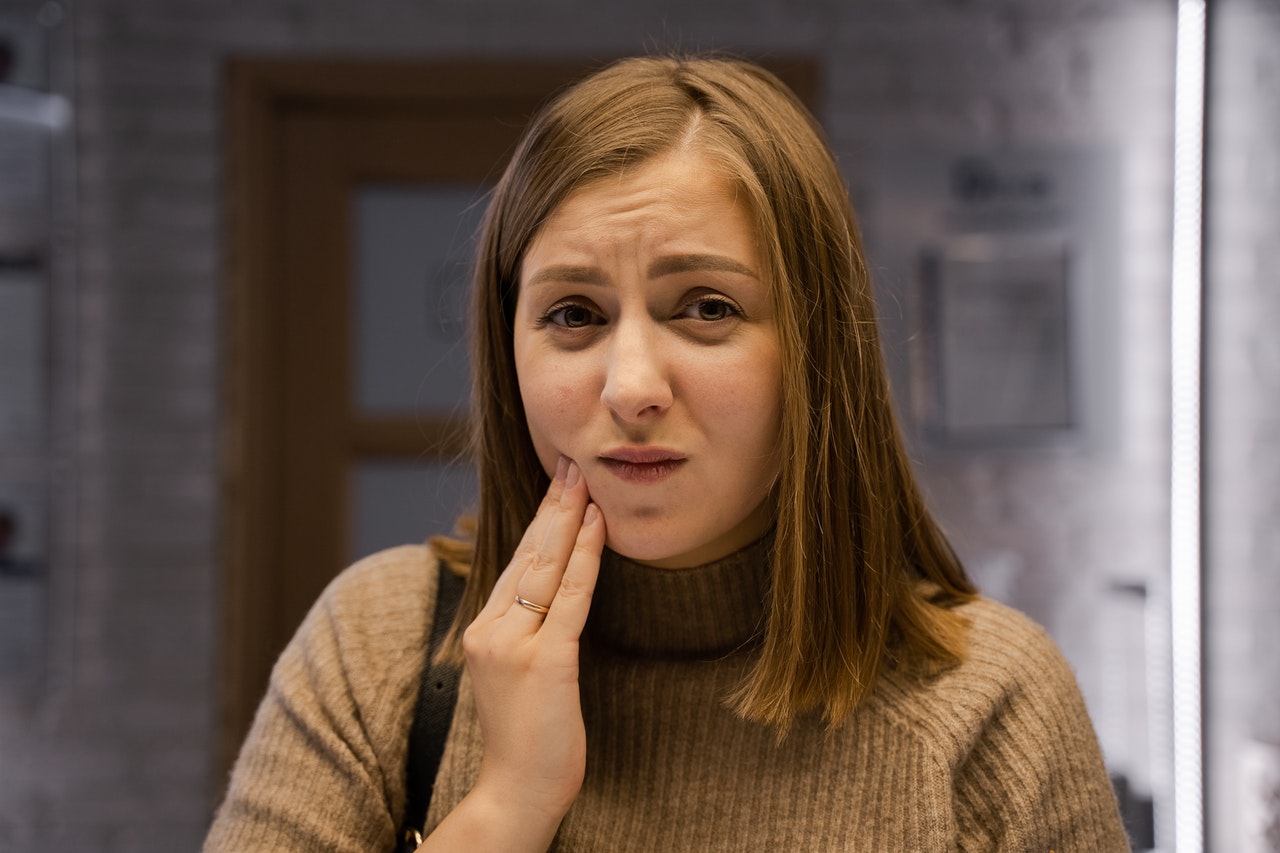
18 Jan How to Stop Grinding Your Teeth
Do you suffer from subconsciously grinding your teeth or clenching your jaw at night or even during the day? Habitual teeth grinding known as bruxism can cause jaw pain, headaches, and wear down your teeth. At Hicks Dental Group, we want to help you reduce the pain and discomfort that bruxism causes with the remedy that works best for you. Continue reading to learn how to stop grinding your teeth, even at night while you sleep so you can find relief.
Symptoms of Teeth Grinding
Consult your dentist about teeth grinding treatment if you notice the following symptoms:
- Grinding or clenching your teeth loudly in your sleep
- An increase in tooth pain or sensitivity
- Your jaw won’t open or close properly
- A dull headache near your temples
- Worn out surfaces of your teeth
- Sore or tight jaw muscles
How Can You Stop Grinding Your Teeth?
1. Use a Mouthguard
This intervention won’t stop the grinding of teeth, but will protect your teeth. Grinding your teeth in your sleep leaves your teeth vulnerable to damage for long periods of time every night. To protect your teeth from chips, cracks, and other damage, it’s best to wear a mouthguard when you go to bed. A mouthguard is a removable splint that covers your teeth and stops them from grinding against each other all night long. While there are over-the-counter mouthguards available, a custom mouthguard prescribed by your dentist will likely fit your teeth better and feel more comfortable.
2. Relieve Stress
Stress is a very common cause of subconscious teeth grinding and jaw clenching, therefore, reducing and managing stress can help stop bruxism in its tracks. Stress not only affects your oral health, but can also lead to high blood pressure, heart disease, and other problems with your overall health. There are many stress management techniques that can help relieve stress, depression, and anxiety to help you stop grinding your teeth, such as exercise, meditation, therapy, and yoga.
3. Relax Your Tongue and Jaw Muscles
If you catch yourself clenching your jaw throughout the day, try pausing and intentionally relaxing your muscles. Protect your teeth and jaw by keeping your teeth apart and placing your tongue behind your front teeth when your mouth is resting with your lips closed. Relieve pain from clenching and grinding by gently massaging your jaw to relieve built-up tension. Relaxing your jaw helps prevent inflamed jaw muscles, reducing pain and putting you less at risk of developing TMJ disorders.
4. Treat Related Disorders
If you have been diagnosed with a disorder or condition that is causing you to grind your teeth, getting treatment as soon as possible can eliminate your teeth grinding. Some disorders and conditions that are often associated with bruxism include:
- Sleep apnea and other sleep-related disorders
- Gastroesophageal reflux disorder
- Parkinson’s disease
- Night terrors
- Dementia
- ADHD
5. Reshape Your Teeth
Depending on the cause of your teeth grinding, you may require dental correction. If overcrowding or misalignment is causing bruxism, reshaping the surface of your teeth can help fix the problem. Dental correction may also be necessary if the damage from grinding your teeth prevents you from chewing properly.
Teeth Grinding Treatment in Prescott, Arizona
If you suffer from teeth grinding, consult the professionals at Hicks Dental Group as soon as possible. We’ll examine your mouth, determine the cause of the bruxism, and discuss how our treatment options will help you stop grinding your teeth. We can also treat any damage caused by bruxism and restore your smile. Call 928-445-6030 or text 928-487-4583 today to schedule an appointment.
Images used under creative commons license – commercial use (1/18/2022). Photo by Pavel Danilyuk from Pexels

